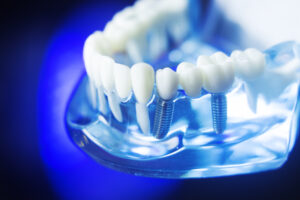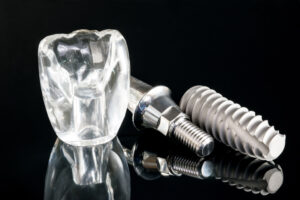As dental professionals, we don’t exactly like knowing that so many patients dread their visits with us, but we certainly understand! Whether it’s a prior bad experience, a fear of the unknown, or a reluctance to give up control, it’s not uncommon to fear going to the dentist. When it’s not just a case of the nerves, but instead a sense of full-on panic, it’s a good idea to consider sedation dentistry. Here’s what you should know.
Sedation vs. Anesthesia
First, let’s be clear: sedation dentistry and anesthesia are two separate things and you will always receive anesthesia when a procedure might be painful, so you never have to worry about experiencing pain during a treatment–discomfort and maybe a bit of pressure or pulling, yes, but not pain. Typically we will numb the area we’re working on with a topical anesthetic first, then inject a local anesthetic to block the nerves that transmit pain.
Sedation is not only about relieving pain; instead, its primarily purpose is to put you at ease during your procedure, although some forms of sedation also offer pain relief. Sedation can range from a mild sedative that relaxes you when you’re nervous or general anesthesia during a procedure like wisdom tooth extraction. Next, we’ll go over the different options for sedation.
Inhaled Sedation
Also known as laughing gas, nitrous oxide is a form of sedation that can be inhaled. It alleviates both pain and anxiety without causing you to sleep through a procedure. Some patients are afraid of injections of local anesthesia; in such cases, inhaled sedation can be given prior to the injection.
This type of sedation wears off quickly, which means you’ll be perfectly fine to drive yourself back to work or home after your procedure. We often use nitrous oxide in conjunction with oral sedation.
Oral Sedation
We can prescribe a single pill for you to take an hour or two before your procedure to help keep you calm in the waiting room and in the chair during your treatment. Usually Valium is prescribed at our clinic, but we may use other benzodiazepines like Halcion or Ativan if Valium is not tolerated. Depending on the dose and your sensitivity to the medication, you will probably remain awake for the procedure, but you will feel less nervous.
With oral sedation, you will likely need someone to drive you to and from our office.
IV Sedation
For more involved procedures–or more nervous patients–we offer intravenous sedation. With this type of sedation, you will receive the drug through a vein. This allows the drug to start working quickly and allows us to adjust the level of sedation. You will be conscious during the procedure, but you may drift in and out of sleep and may not be fully aware of what is happening.
General Anesthesia
General anesthesia is typically reserved for the most complex procedures, like extracting impacted wisdom teeth, and for patients who are unable to tolerate dental procedures under any other circumstances. There are always risks involved when general anesthesia is administered; we will explain those to you and have you sign an informed consent form before your procedure.
Learn More About Sedation Dentistry in Morganville, NJ
We are happy to offer our patients sedation dentistry when needed. If you’re ready to start your journey to better oral health with Dr. Richard Champagne and a truly collaborative and compassionate dental team, contact Champagne Smiles in Morganville, NJ today to schedule your first appointment.




